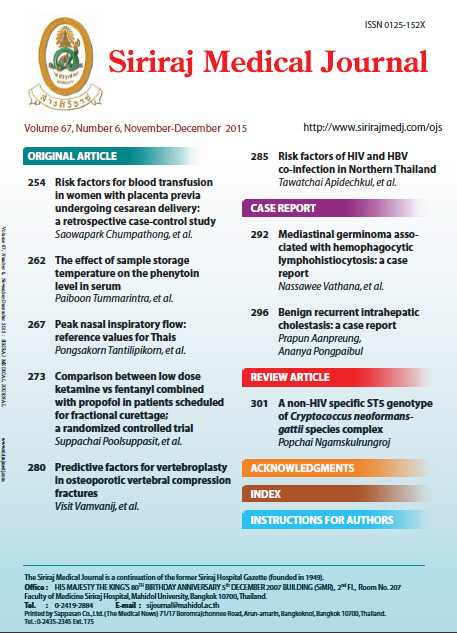A Non-HIV Specific ST5 Genotype of Cryptococcus neoformans-gattii Species Complex
Abstract
Cryptococcosis is a basidiomycetous yeast infection caused by Cryptococcus neoformans-gattii species complex which comprises of two sibling species, Cryptococcus neoformans and Cryptococcus gattii. Since the beginning of the acquired immune deficiency syndrome (AIDS) pandemic in 1980s, the prevalence of cryptococcosis has increased dramatically. More than 95% of cryptococcosis was AIDS-associated thus cryptococcosis was considered as an opportunistic infection. However, over the years, this paradigm has been challenged by several epidemiological studies reporting non-AIDS-associated cryptococcosis. Firstly, in 2008, Chang et al. reported that most (91.5%) of 129 cryptococcosis cases from China occurred in immunocompetent patients. Secondly, in 2010, an epidemiological survey of cryptococcosis in Korea revealed 77.4% of the 62 cases were non-HIV patients. Further molecular epidemiological study revealed the ST5 genotype is responsible for most cases (91-98%) of non-HIV cryptococcosis. Thus, genetic susceptibility to cryptococcosis by the Far East Asian bloodline was suspected. As close siblings of the Far East Asian bloodline, molecular epidemiological surveys of cryptococcosis were conducted. However, two molecular epidemiological studies in Thailand revealed 98% of cryptococcal cases occurred in HIV infected patients and, as expected, only 8-14% belonged to the non-HIV specific ST5 genotype.
Keywords: Cryptocococcus, genotype, molecular type, epidemiology, HIV
Downloads
Published
How to Cite
Issue
Section
License
Authors who publish with this journal agree to the following conditions:
Copyright Transfer
In submitting a manuscript, the authors acknowledge that the work will become the copyrighted property of Siriraj Medical Journal upon publication.
License
Articles are licensed under a Creative Commons Attribution-NonCommercial-NoDerivatives 4.0 International License (CC BY-NC-ND 4.0). This license allows for the sharing of the work for non-commercial purposes with proper attribution to the authors and the journal. However, it does not permit modifications or the creation of derivative works.
Sharing and Access
Authors are encouraged to share their article on their personal or institutional websites and through other non-commercial platforms. Doing so can increase readership and citations.











